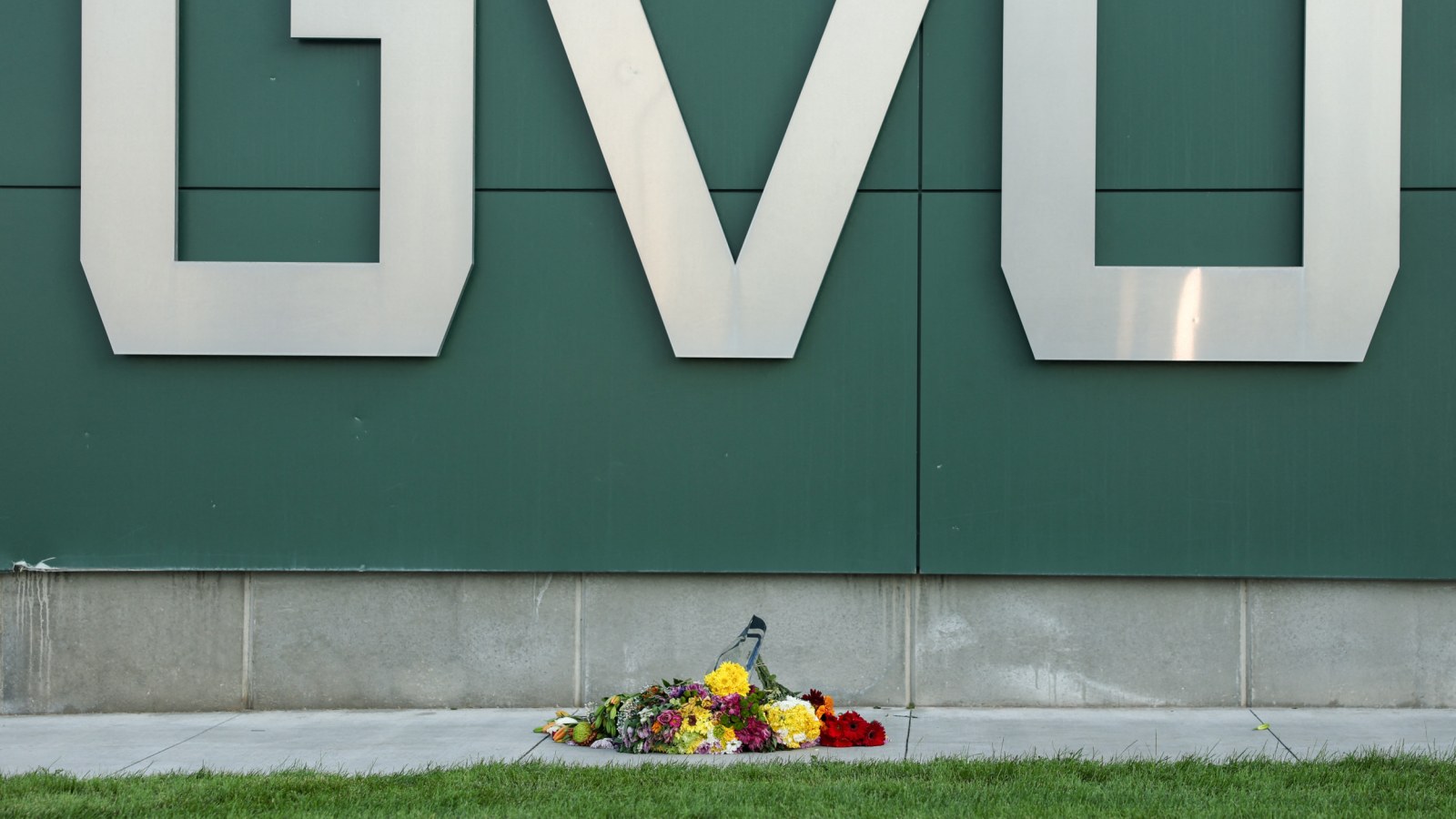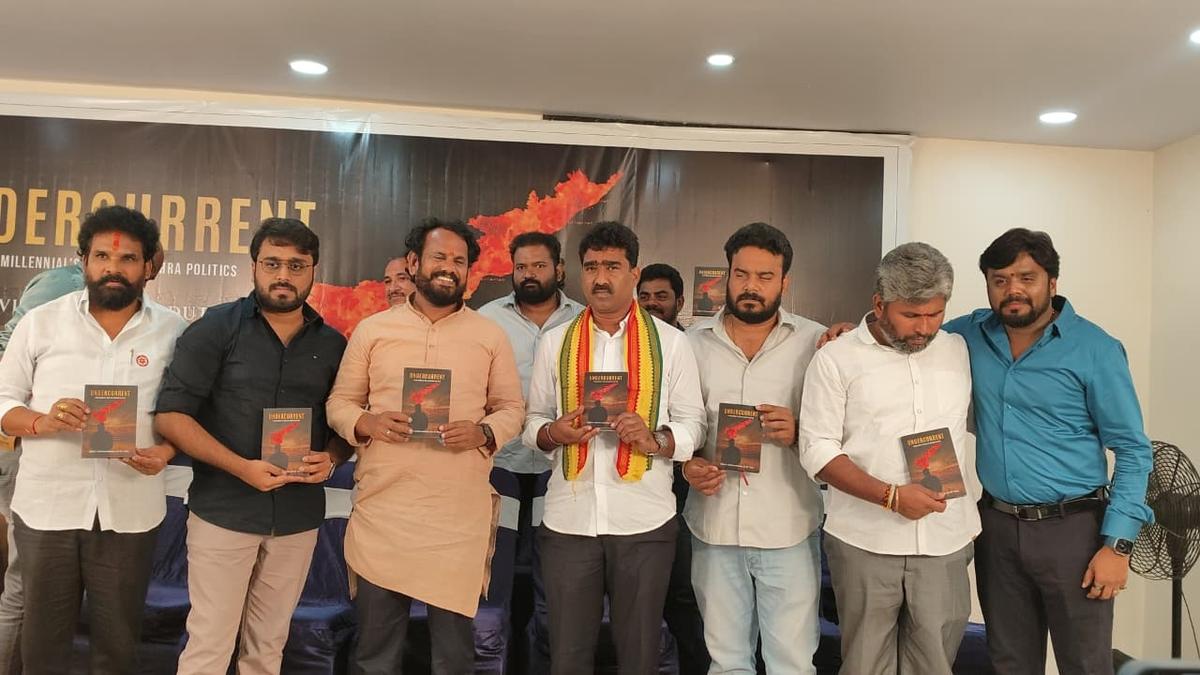By Jesus Mesa
Copyright newsweek

Charlie Kirk built his career confronting political opponents head-on. Online, on campus, on stage, on TV. He thrived on challenge and disagreement, and even some of his critics now say that’s exactly what made him such a powerful voice in the grassroots of the MAGA movement. In the aftermath of his assassination, there’s growing concern that the space Kirk occupied—a space of open debate, not violence—may be closing fast.”He was showing up to campuses and talking with anyone who would talk to him,” wrote Ezra Klein, the liberal New York Times columnist, in a piece mourning Kirk’s death. “Kirk was practicing politics in exactly the right way.” Klein described Kirk as a practitioner of persuasion—a fierce ideological opponent but one who still played by the rules.”We are all safe, or none of us are,” he warned.Kirk, 31, was gunned down during a speech at Utah Valley University on Sept. 10. The shooter remains unidentified, and officials have released no motive or details about the person of interest they are seeking. But in 24 hours, the gruesome, public killing has reshaped the political landscape in America. Some of Kirk’s former far-right critics are now calling him a martyr. Others are using his death as proof that “war”—not argument—is the only option left.On social media and cable news, calls for vengeance have drowned out calls for restraint. “We’re going to avenge Charlie’s death,” said Fox News host Jesse Watters. Elon Musk wrote, “The Left is the party of murder.” Right-wing influencers posted “This is war” and invoked the specter of civil conflict. Alex Jones declared, “Make no mistake—we are at war.”That escalation is exactly what experts in the field of political violence fear most.”Although we don’t yet know the shooter or their motivations, the attack shows that violence has been normalized as a form of political action,” Kurt Braddock, a professor at American University who studies extremist communication, told Newsweek. “Some—including prominent media figures—have already begun to use Kirk’s death to justify more violence.”A Conservative GatekeeperKirk was one of Donald Trump’s most prominent allies and an architect of the youth mobilization effort that helped secure the president’s remarkable return to power in 2024. Vice President JD Vance eulogized his friend by saying, “Charlie helped deliver the presidency. He was irreplaceable.” But within the MAGA movement itself, Kirk’s position was somewhat more complicated.Despite his firebrand style, Kirk was frequently attacked by figures on the far edges of the right for being insufficiently radical. White nationalist Nick Fuentes and his followers labeled Kirk a gatekeeper, accusing him of co-opting Trump’s populist energy while diluting its message. During the so-called “Groyper Wars” in 2019, Fuentes supporters regularly disrupted Kirk’s campus events, targeting him for not embracing a harder line on immigration and rejecting openly homophobic rhetoric.Some grievances were based on policy. Kirk once said that high-skilled international students graduating from U.S. universities should receive green cards stapled to their diplomas—a position hardliners saw as a betrayal of “America First” principles. Conservative columnist Michelle Malkin publicly condemned the stance, accusing Kirk of abandoning core nationalist values. Others objected to his support for openly gay conservatives or his unwillingness to fully endorse white identity politics.Yet Turning Point USA—the youth-focused organization Kirk co-founded at 18—grew into one of the most influential forces in conservative politics, serving as a hub for activating conservative or apathetic students across thousands of high school and college campuses. After the election, TPUSA and Kirk emerged as influential power brokers in the renewed Trump administration.Anger and RadicalizationIn life, Kirk’s critics often painted him as effective but compromised. In death, those distinctions have vanished.”I think his death being framed as a martyrdom will only drive that anger and radicalization,” Dr. Matthew Boedy, a professor at the University of North Georgia whose upcoming book examines Kirk as the new face of Christian nationalism, told Newsweek. “Kirk in his death will become akin to what Trump became after the Butler shooting. And now Trump will seek retribution.”Already, some of Kirk’s harshest detractors have recast him as a symbol. On far-right forums like Patriots.win, users are calling for mass arrests of Democrats. Influencers who once labeled Kirk a sellout now praise his legacy.Even Fuentes, after years of attacking him, wrote on X: “The violence and hatred has to stop. Our country needs Christ now more than ever.”Some observers warn that this shift may be driven more by political utility than genuine remorse.”Kirk framed himself as a relatively accessible voice,” Luke Baumgartner, a research fellow at George Washington University’s Program on Extremism, told Newsweek. “If someone steps into his place, it’s unlikely they will be a moderating force. They would lean into more outrage-driven and radical commentary, not less.”That shift is already underway. “His assassination is already stoking anger and outrage, especially on the far right, which is further polarizing an already divided U.S.,” said Dr. Alex Hinton, director of the Center for the Study of Genocide and Human Rights at Rutgers University.”Hold on tight. The road ahead for the U.S. will likely be rocky.”When Violence Becomes a MemeKirk’s death may be the most visible example yet of what extremism researchers at the Network Contagion Research Institute (NCRI) have long warned about: the normalization of political violence, often disguised as irony, rebellion, or satire and left to fester on social media.The NCRI points to the case of Luigi Mangione, the 26-year-old accused of assassinating a healthcare executive in Manhattan last year. Mangione has since been glorified in fringe online circles, his face merged into memes portraying him as a video-game vigilante.”Psychologically, our research has shown a growth in permission for murder,” NCRI co-founder Joel Finkelstein told Newsweek. “We assess the threat of a phase change. The celebration of violence we’re now seeing in open forums was previously limited to extremist platforms.”That normalization hasn’t remained confined to obscure corners of the internet—or to one side of the political spectrum. In just the past year, America has witnessed a disturbing escalation: the firebombing of Pennsylvania Governor Josh Shapiro’s home during Passover; the assassinations of former Minnesota House Speaker Melissa Hortman and her husband; and the near-fatal shooting of State Senator John Hoffman and his wife.These attacks followed two assassination attempts on Donald Trump during the 2024 campaign season, a brutal 2022 home invasion targeting then-House Speaker Nancy Pelosi—during which her husband Paul was bludgeoned with a hammer—and, before all of it, the January 6th, 2021 insurrection.The New NormalBruce Hoffman, a senior fellow at the Council on Foreign Relations and a longtime terrorism expert, said the erosion of democratic discourse is no longer just theoretical but actively enabling violence.”Terrorism doesn’t occur in a vacuum,” Hoffman told Newsweek. “It reflects the divisiveness and polarization of society. When voices like Kirk’s—comparatively moderate voices willing to debate—are silenced, they’re often replaced by louder, more radical ones.”Such a replacement is already in motion. In the wake of Kirk’s assassination, Stewart Rhodes—the recently pardoned Oath Keepers leader convicted for seditious conspiracy in the January 6 attack—appeared on Alex Jones’ Infowars to declare that “war is here,” urging Trump to invoke the Insurrection Act. Laura Loomer warned her legion of followers: “You could be next.”One concern now is that Kirk’s death will be remembered less for what he did—build coalitions, openly debate ideas in hostile environments—and more for what it can be turned into: a pretext for vengeance.”That would be a dangerous legacy,” Braddock, the American University professor, told Newsweek. “Every politician and public figure should be trying to turn down the temperature at this moment. Instead, we’re seeing leaders and influencers raise it. That won’t lead us toward safety. It will lead us further into the spiral.”



